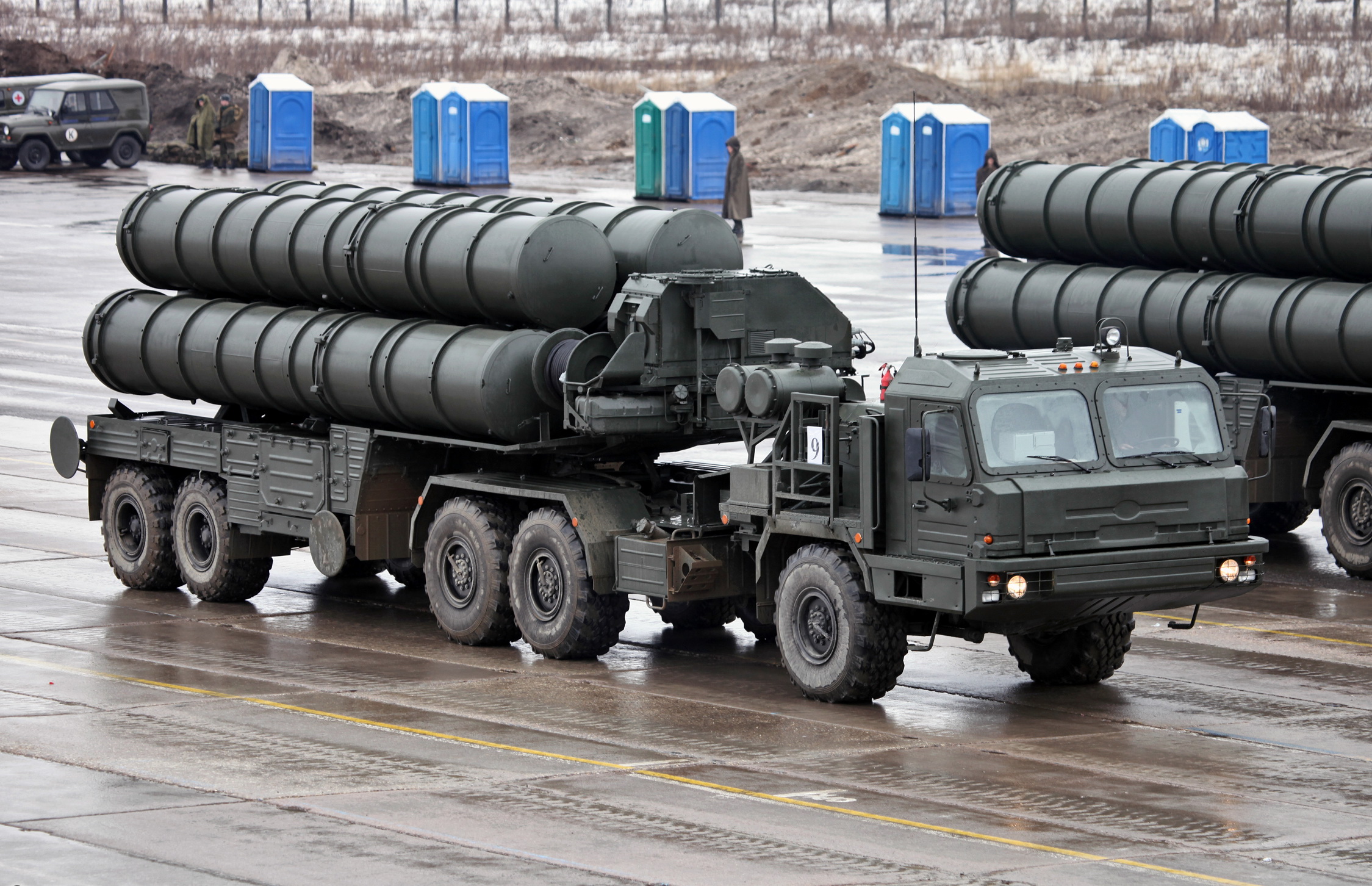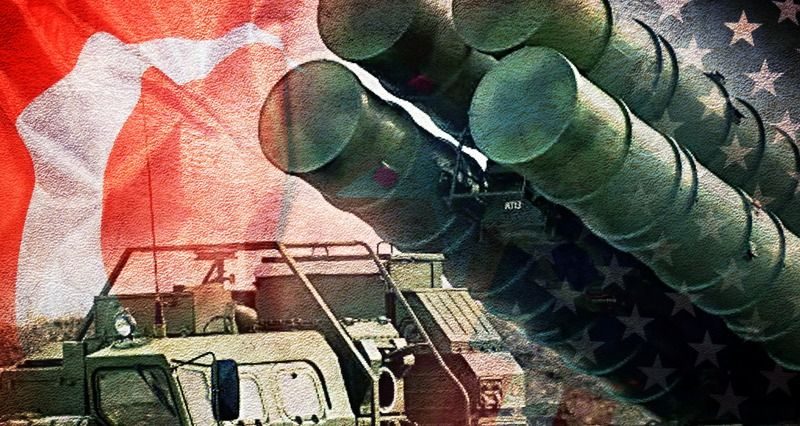For the first time in 55 years, the United States threatened Turkey via an official letter after their purchase of Russian S-400 systems.

Normally, the United States indirectly criticizes Turkey across a variety of media. That is, until last week when Washington changed tactics and took a step further, sending a letter to the Minister of Defense of Turkey, Hulusi Akar, with signed by the Acting Secretary of Defense Patrick Shanahan. One speculates this was because Washington realized the inefficacy of the normal approach.
In the letter, Shanahan demanded Turkey reject procurement of Russian S-400 air defense systems by July 31. The consequence of not heeding the warning? Washington will stop training Turkish pilots in the United States, send them back to Turkey, and suspend Turkey’s participation in the F-35 fighter program. Officials from the U.S., including President Donald Trump, have for months threatened Turkey over its purchase of the S-400, but the transition from verbal statements in the news media to direct written threats demarcates a new level of crisis between the two countries and indicates that the issue has acquired an official character.
Johnson’s famous letter
Exactly 55 years ago, on June 5, 1964, former US President Lyndon Johnson sent a letter to Turkish Prime Minister İsmet İnönü attempting to prevent Turkey from invading Cyprus. The letter, written in harsh tone complete with an ultimatum, emphasizes that Turkey’s action would have serious economic consequences and that the Turks would not be able to use American weapons during the operation. In addition, the message contained an unambiguous hint that in case of a Soviet attack on Turkey, the country’s NATO allies would not come to their defense. After receiving this letter, İnönü agreed to visit the United States, and the operation in Cyprus was postponed.
Today, tensions between the United States and Turkey have increased dramatically in connection with the purchase of Russian systems S-400, and the US has made a new ultimatum. In the same strict tone and lack of compromise, the United States has threatened Turkey for a second time. Turkey was given a deadline of July 31 to cancel the purchase of the Russian S-400 missile defense systems.
The contents of the letter containing the demand were made public by a number of news agencies.
A SECOND THREATENING LETTER
The first media outlets that reported about the threat looming over Turkey’s participation in the F-35 program and the fact that Washington was preparing sanctions measures were reported in Reuters and Foreign Policy, alongside the fact that these demands would soon be given to Turkey in the form of a letter.
DEFENCE MINISTRY CONFIRMED
After the appearance of the letter in the media on June 6, the Turkish Ministry of Defense acknowledged receiving it on June 8. However, the first statement of the ministry contained neither the content of the message nor the harshness of its tone. All that Turkey announced was that US Secretary of Defense Patrick Shanahan sent a letter to Turkish Minister of Defense Hulusi Akar. This letter, which addresses the issues of defense and security between the two countries, expresses an intention to find a solution to the existing problems within the framework of a strategic partnership and in a form that will retain large-scale cooperation on security issues. The importance of continuing the negotiation process is also emphasized.
After a short time, the ministry made a second statement, which summarized the threats from the American side. It was emphasized that the process of withdrawal from the F-35 program will be based on the principle of respect in order not to affect other issues of cooperation between the two countries in the field of security.
WHICH THREATS DO THEY MEAN?
Meanwhile, the American message is not limited to the consideration of preliminary steps to withdraw Turkey from the production program of the F-35, as stated by the Ministry of Defense.
According to the translation of the text published by journalist Murat Yetkin, the letter also contains threats of an economic nature. The following are some of the points of the message:
- If Turkey receives S-400, our country will have to develop a plan to prevent Turkey from participating in the F-35 program. In case Turkey buys S-400, it will not be able to get the F-35.
- In order to ensure that Turkey’s participation in the activities of the F-35 program is in accordance with the rules, we do not envisage the participation of Turkey in the meeting of the Executive Committee of the participants of the F-35 program, which will take place on June 12, 2019, and the process of updating the statutory documents on the program will be without Turkey’s participation.
- All measures related to the F-35 are based on the risks of the presence of the S-400 in Turkey and are not part of the sanctions against Russia in the framework of CAATSA. Both parties in Congress (Republicans and Democrats) are determined to support the imposition of sanctions in the framework of CAATSA against Turkey in case it acquires S-400.
- The purchase of S-400 by Turkey will jeopardize the possibilities of developing cooperation and providing protection in relations with the United States and within the structure of NATO; will result in Turkey’s excessive strategic and economic dependence on Russia; will violate Turkey’s ambitious plans for the development of its defense industry and economic development. Your continuation of this strategy will cause losses in national income, employment and international trade. President Trump’s intention to increase the current volume of trade between our countries, equal to $ 20 billion to $ 75 billion, may be in danger after the introduction of sanctions against Turkey within CAATSA.
BY JULY 31
US Deputy Secretary of Defense Ellen Lord announced that Turkey was given the deadline of July 31 to cancel the purchase of the S-400 system. Responding to questions from journalists in Washington, Lord said that Turkey’s purchase of Russian S-400 complexes is incompatible with participation in the F-35’ program. According to Lord, Turkey will be withdrawn from the program, Turkish military pilots undergoing training in the US will be expelled, and Turkish companies will lose the opportunity to participate.
WHAT WILL HAPPEN WITH THE F-35?
Turkey has already received four F-35 fighters which were planned to be stationed at the Erhach base in Malatya in November.
Ellen Dord stressed that the Pentagon does not currently have a unified position regarding the future of these four F-35s. According to her, the ministers of defense of the two countries will have to come to a compromise solution during the negotiations.
PRESIDENT ERDOGAN: A DONE DEAL
President Erdogan, speaking last Tuesday, stressed that Turkey cannot talk about the refusal of the agreement it had already concluded with Moscow.
In turn, the head of the Ministry of Defense, Hulusi Akar, in his statement on May 22, stressed that Turkish military personnel in the Russian territory are being trained in the use of S-400 systems. The head of Rostec, Sergey Chemezov, later said that deliveries of the S-400 to Turkey will begin within the next two months and that training was already complete.
NATO COMMANDER: DIFFERENT LANGUAGES
Another statement on the topic came from NATO leadership. The Commander-in-Chief of the NATO Joint Armed Forces in Europe, US Air Force General Walters, stated that the S-400 could take advantage of the capabilities of the F-35 fighter jets. Speaking in the Slovak capital Bratislava as part of the GLOBSEC 2019 Forum, Walters said that the S-400 and F-35 cannot be used simultaneously, as the S-400 is built to destroy the NATO jets. According to the Independent newspaper, Walters said that the S-400 is not compatible with other NATO systems. It goes beyond technical capacity: the S-400 does not speak the same language of NATO.









Leave a Reply